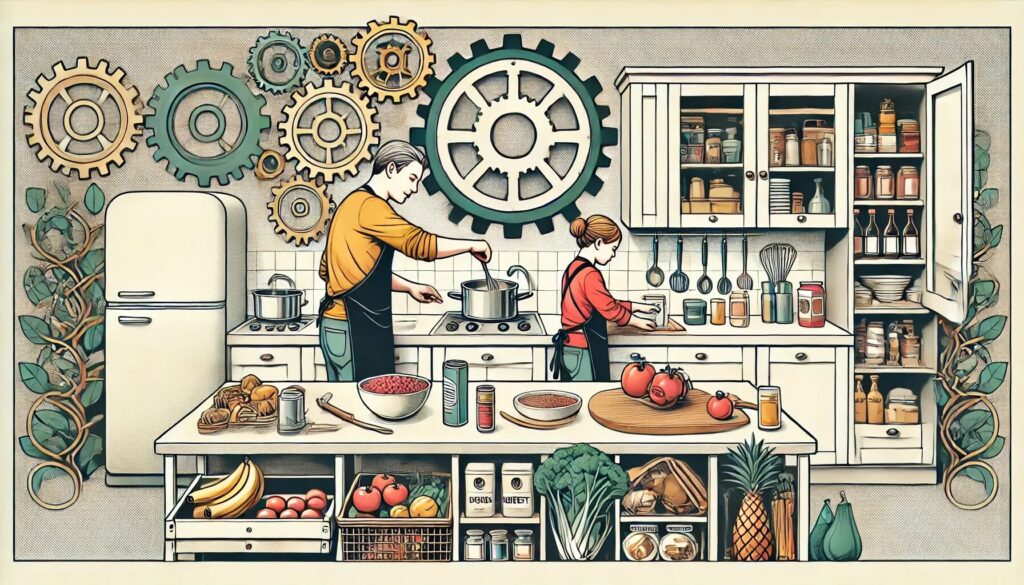1. Introduction
The home kitchen can be viewed as a microcosm of industrial society. Not only does it concentrate the flow of procurement, processing, and consumption, but it is also a place that promotes transformation in household role-sharing and awareness of equality through the division of household chores. In this article, we will examine how to create small changes by reviewing industrial society and household dynamics through the lens of the kitchen.

2. Practical Points and Specific Examples
- **”The Kitchen’s Role in Industrial Society”**The kitchen is the final destination in the process where ingredients are produced, distributed, and ultimately consumed. For example, ingredients available at supermarkets and convenience stores maintain their freshness through logistics networks and freezing technology. Additionally, home cooking functions as a processing line similar to a factory production line. The evolution of kitchen appliances has enabled efficient “production,” making homes serve as small manufacturing centers.
- **”Changes Brought About by Sharing Household Chores”**The division of household chores has the power to improve the domestic work environment and create small changes. For instance, fairly dividing tasks such as cooking, cleaning, and taking out the garbage reduces household stress and nurtures a sense of shared responsibility among all members. Furthermore, visualizing task division and sharing schedules enables efficient household management.
- **”The Kitchen as an Educational Space”**The kitchen can also be a place where family members cooperate to learn about how society works. For example, cooking with children provides an opportunity to teach them how ingredients are produced, distributed, and ultimately consumed. Additionally, through household chores, they can learn about responsibility and the importance of cooperation, becoming a catalyst for nurturing awareness of equality in the next generation.
- **”Contributing to Sustainability”**The division of household chores and kitchen management are also important from a sustainability perspective. For example, we can reduce environmental impact by planning the consumption of refrigerated foods and reducing food waste. Additionally, households can directly contribute to environmental conservation by choosing recyclable packaging materials and locally sourced ingredients.
3. Points to Note and Tips for Implementation
When reviewing the division of household chores and kitchen management, it’s important to maintain flexibility. Rather than aiming for perfection, seek methods that make it easy for everyone to participate. For example, it’s helpful to use household management apps to share tasks and utilize kitchen appliances and external services to reduce the workload. Additionally, through family discussions, you can create rules that suit your household.
4. Summary and Next Actions
The kitchen is a microcosm of industrial society and a place that creates small changes both inside and outside the home through the sharing of household chores. In your next household chore or cooking session, try to be conscious of household role division and food consumption patterns, and incorporate small improvements. The changes that begin in the kitchen will enrich family life and become a step toward positive influence on society as a whole.




